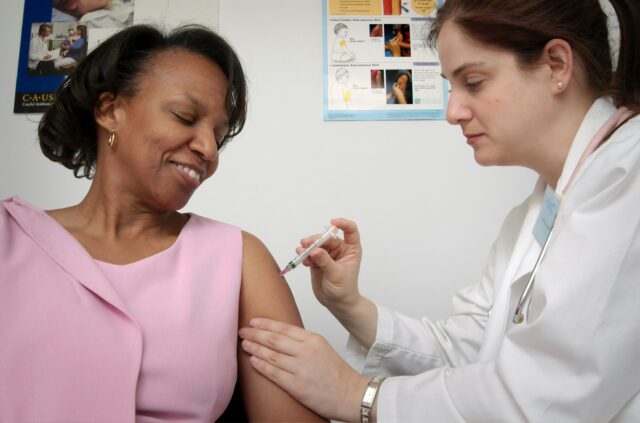
Published Media / Apr 1, 2025
Smart framing can increase immunization rates
Name of publication: The Contrarian

The measles outbreak that began in West Texas in late January has led to more than 400 cases, at least 70 hospitalizations, and the first U.S. deaths from measles in a decade. Low confidence in vaccination in the affected region means the outbreak could last for at least several more months.
This preventable emergency has been fueled, in part, by misleading messages about vaccines that have contributed to the measles vaccination rate among children dropping below the 95% “community immunity” threshold nationwide, and far lower in areas like West Texas. This puts everyone at risk of outbreaks of vaccine-preventable diseases.
One way to address vaccine hesitancy is by having conversations with friends, family, neighbors, and anyone in our broader networks influenced by myths about immunization. These conversations can provide an antidote to vaccine misinformation that exploits parents’ concern for their children’s health-–but only if they don’t feel judged, ridiculed, or patronized. Otherwise, their concerns about vaccinations are likely to harden. That means what we say and how we say it really matter.
My colleagues at the FrameWorks Institute have conducted interviews, focus groups, and surveys about vaccines with more than 9,000 Americans since 2021. Our findings shed light on why myths about vaccines take root and offer strategies to fight back.
Issues: Health
Countries: United States